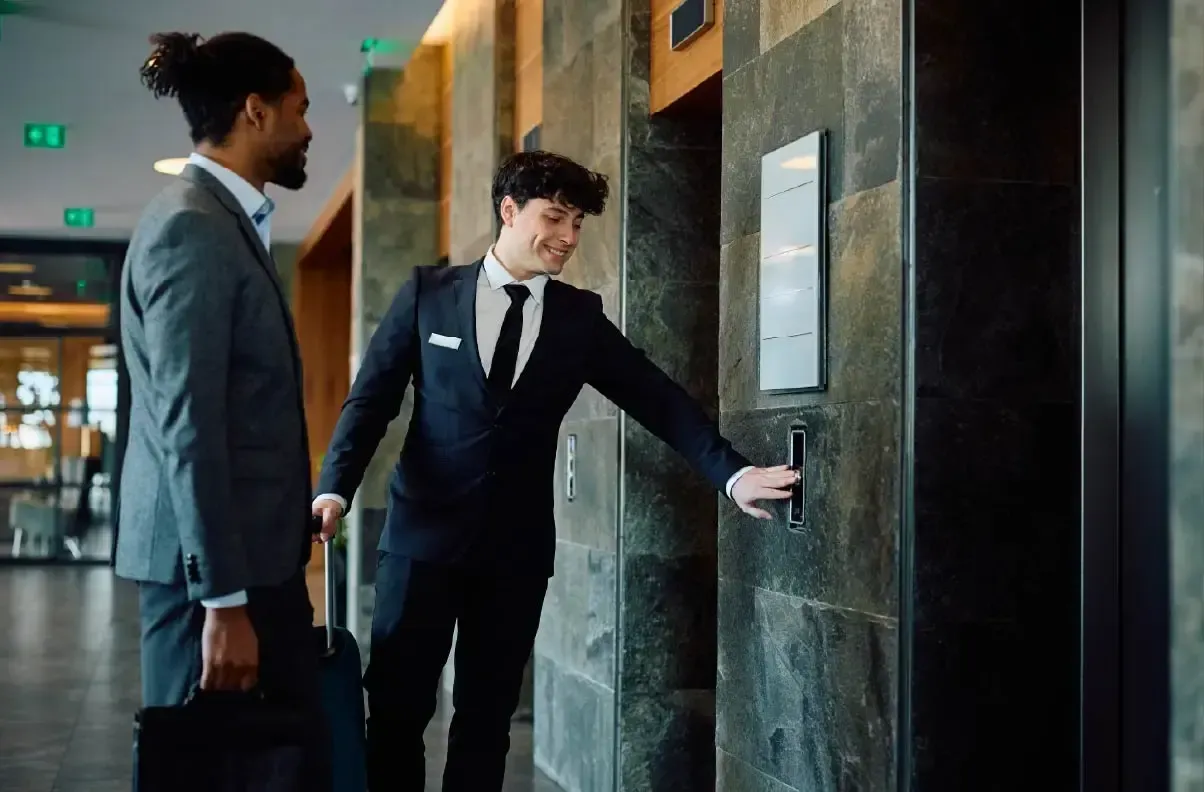This is where the future of hospitality takes shape. Get inspired by the industry's leading voices as they discuss the changing landscape of hospitality, transformational experiences and investment strategies.
What does transformational hospitality look like?
By focusing on the following areas, the hospitality industry can enhance guest experiences, build stronger connections and drive sustainable revenue growth.
Emotional intelligence over algorithms
Hospitality intuition transcends math and code, focusing on empathy and connection. Laura from Sircle Collection highlighted the need to teach emotional intelligence, hiring staff who can recognize and address guests' distress rather than just entering data into systems.
Authenticity in marketing
Marion from Mr. and Mrs. Smith emphasized that authentic and creative content requires human touch and intelligence. This is crucial for maintaining the unique spirit of boutique and independent hotels, which can take more risks and stay nimble without losing their essence.
The power of genuine connection
Eirik from Strawberry stressed the importance of creating soulful experiences that build lasting memories. Modern travelers seek genuine recommendations over polished marketing, favoring authentic, relatable content on platforms like TikTok.
Building unique hotel brands
Marion explained that Mr. and Mrs. Smith’s strategy involves curating exceptional hotels and helping them shine without altering their DNA. Their focus on high-quality, unbiased content and thoughtful curation sets these hotels apart, offering them a unique platform and wider distribution.
Breaking down silos
Our panelists also discussed the benefits of breaking down traditional departmental silos within hotels, advocating for cross-disciplinary teams that build trust and enhance customer service by understanding different roles and challenges.
Localizing hotel experiences
Eirik noted that Strawberry is shifting away from standardized mega-brands to more localized offerings, ensuring that hotels resonate with their specific markets and build stronger local connections.
Investing in company culture
The panel emphasized the importance of investing in company culture, with dedicated officers fostering energy, courage and enthusiasm within the organization. Sharing unique guest experiences across hotels helps build a cohesive, value-driven culture.
Technological transformation
Strawberry's technological overhaul, including new PMS (Mews), CRM, and RMS systems, has improved operational efficiency, pricing strategies and guest services. This transformation allows for better use of data and integration of advanced technologies like AI for tasks such as accounting.
Loyalty and community
Dimitris from Wyndham underscores the evolving nature of brand standards, driven by consumer demands for localized experiences. Wyndham’s approach involves flexible regionalization and fostering a community through loyalty programs, responding to the unique needs and preferences of their diverse customer base.
Empowering hotel staff
Empowering staff to create personalized guest experiences and recognizing their efforts can significantly enhance employee satisfaction and guest loyalty. Providing budgets for unique guest interactions and celebrating staff achievements are key strategies for fostering a positive and motivated workforce.
The hospitality landscape today
The hospitality industry is experiencing a significant technological shift. Hotels are increasingly feeling the pressure from nimble competitors and are challenged to find innovation partners who truly understand their business needs. Insufficient automation is a major issue, which, if addressed, can streamline operations and enhance guest experiences.
Top investment areas include security and AI/automation, as the industry seeks to combat cybercrime and improve process flows. Moreover, hotels are focusing on operational efficiency to remove friction from all experiences, emphasizing that technology should serve practical purposes rather than being adopted for its own sake.
Emerging trends such as affordable luxury, wellness 2.0 and pet travel are shaping the future of hospitality, with expectations of substantial growth. Additionally, the shift towards remote work, especially among Gen Z and millennials, is influencing how hotels operate and cater to their guests.
There’s also a growing need to address the skills gap and retrain existing staff, as employees are often a primary security threat. Investments in cloud technology have paid off, reducing costs and improving system efficiency. To make informed AI and IT investment decisions, hotels should focus on the desired outcomes rather than specific features, leveraging partners like Mews for technological integration and development.
A new wave of hospitality investments
Our industry is witnessing a dynamic transformation driven by strategic investments, tech innovation and evolving guest demands. Our panel discussion (featuring leaders from TSH, Bob W and JPMorgan) highlighted several key trends shaping the future of hospitality investment.
One prominent trend is the strategic partnership between hoteliers and real estate private equity. These collaborations bring a long-term perspective essential for enhancing property value through operational expertise and brand strength. TSH's journey exemplifies this, as they leverage visionary entrepreneurs backed by substantial capital to support innovative concepts. This approach ensures growth in both operational and brand value.
Technological integration is another game-changer in the hospitality sector. Bob W's tech-driven model significantly reduces operational costs and scales efficiently. By automating various processes, Bob W operates hotels with minimal staff, achieving high guest satisfaction and rapid expansion. This technological edge allows them to establish numerous aparthotels with a lean team, demonstrating how tech can reinvent guest experiences and streamline operations.
The investment landscape has also shifted from a tech-centric focus to a more fundamental value-driven approach. Investors are now prioritizing essential aspects like the total addressable market (TAM), unique business models and strong sales engines. It's crucial for businesses to align with investors who understand their core principles, especially in today's high-interest-rate environment.
Urban real estate challenges, particularly the shortage of affordable housing in major European cities, are prompting innovative solutions. For example, converting high-vacancy office spaces into mixed-use developments is emerging as a viable strategy. TSH’s commitment to social impact includes allocating 1% of their revenues to provide subsidized housing, fostering a diverse and vibrant community.
Bob W's model of integrating local elements into their properties enhances guest satisfaction and revitalizes local economies. By collaborating with neighborhood businesses and artists, they create an authentic guest experience that draws people back into underutilized areas.
Moreover, the convergence of various real estate models and the growing importance of ESG (Environmental, Social and Governance) factors are reshaping the industry.
The future of hospitality investment lies in a balanced approach that leverages strategic partnerships, embraces technology, addresses urban real estate challenges and prioritizes social impact.
To catch up on other sessions – and every other speaker from the main stage – check out Unfold Unpacked. It’s where you’ll find the highlights from hospitality tech’s most innovative event, including main stage messages, workshop wisdom and a photo roundup capturing the excitement.
Written by

Anuska Linc
Anu prefers unscrambling words over mincing them. Always punny, sometimes funny. You will find her if you want to in the garden unless it's pouring down with rain.










